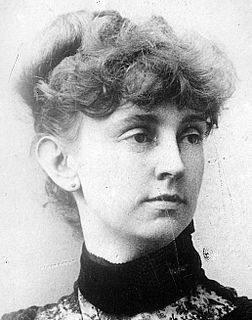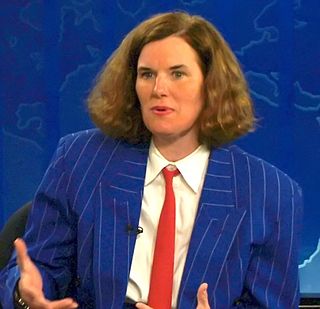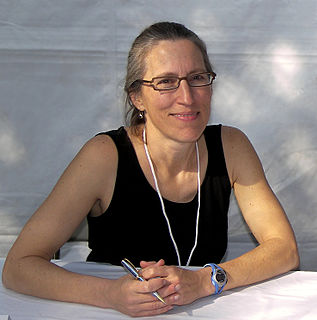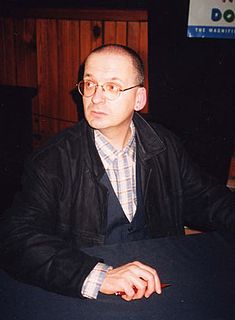A Quote by Kate Douglas Wiggin
If I haven't anything to write, I am just as anxious to 'take my pen in hand' as though I had a message to deliver, a cause to plead, or a problem to unfold. Nothing but writing rests me; only then do I seem completely myself!
Related Quotes
When I sat down to write I just felt like a geek writing about myself. And then it dawned on me, just because of the way I am, I can't stop talking, and part of the problem is that anything that gets said reminds me of something that happened to me one time, and invariably I cut people off and talk about myself.
I don't even own a computer. I write by hand then I type it up on an old manual typewriter. But I cross out a lot - I'm not writing in stone tablets, it's just ink on paper. I don't feel comfortable without a pen or a pencil in my hand. I can't think with my fingers on the keyboard. Words are generated for me by gripping the pen, and pressing the point on the paper.
There was a message written in pencil on the tiles by the roller towel. This was it: What is the purpose of life? Trout plundered his pockets for a pen or pencil. He had an answer to the question. But he had nothing to write with, not even a burnt match. So he left the question unanswered, but here is what he would have written, if he had found anything to write with: To be the eyes and ears and conscience of the Creator of the Universe, you fool.
I got to take classes in writing with a fountain pen, and actually, something you make is your own textbook. So, while you're learning about something, you have to write essays on it, and then you handwrite in cursive, in fountain pen, your essays out on beautiful paper and you bind it together into a book that you hand in at the end of the course.
I am content to live and die as the mere repeater of Scriptural teaching - as a person who has thought out nothing and invented nothing - but who concluded that he was to take the message from the lips of God to the best of his ability and simply to be a mouth for God to the people. - mourning much that anything of his own should come between - but never thinking that he was somehow to refine the message or to adapt it to the brilliance of this wonderful century and then to hand it out as being so much his own that he might take some share of the glory of it.
For me, it is as though at every moment the actual world had completely lost its actuality. As though there was nothing there; asthough there were no foundations for anything or as though it escaped us. Only one thing, however, is vividly present: the constant tearing of the veil of appearances; the constant destruction of everything in construction. Nothing holds together, everything falls apart.
To know that one does not write for the other, to know that these things I am going to write will never cause me to be loved by the one I love (the other), to know that writing compensates for nothing, sublimates nothing, that it is precisely there where you are not--this is the beginning of writing.
When he whom I love travels with me or sits a long while holding me by the hand, … Then I am charged with untold and untellable wisdom, I am silent, I require nothing further, I cannot answer the question of appearances or that of identity beyond the grave, But I walk or sit indifferent, I am satisfied, He ahold of my hand has completely satisfied me.
There are some things in this establishment that are fundamental... about which I shall deal plainly with you... the government by a single person and a parliament is a fundamental... and... though I may seem to plead for myself, yet I do not: no, nor can any reasonable man say it... I plead for this nation, and all the honest men therein.
I write on a computer, but I've run the complete gambit. When I was very young, I wrote with a ballpoint pen in school notebooks. Then I got pretentious and started writing with a dip pen on parchment (I wrote at least a novel-length poem that way). Moved on to a fountain pen. Then a typewriter, then an electric self-correct. Then someone gave me a word processor and I was amazed at being able to fit ten pages on one of those floppy discs.
First, consider the pen you write with. It should be a fast-writing pen because your thoughts are always much faster than your hand. You don't want to slow up your hand even more with a slow pen. A ballpoint, a pencil, a felt tip, for sure, are slow. Go to a stationery store and see what feels good to you. Try out different kinds. Don't get too fancy and expensive. I mostly use a cheap Sheaffer fountain pen, about $1.95.... You want to be able to feel the connection and texture of the pen on paper.



































